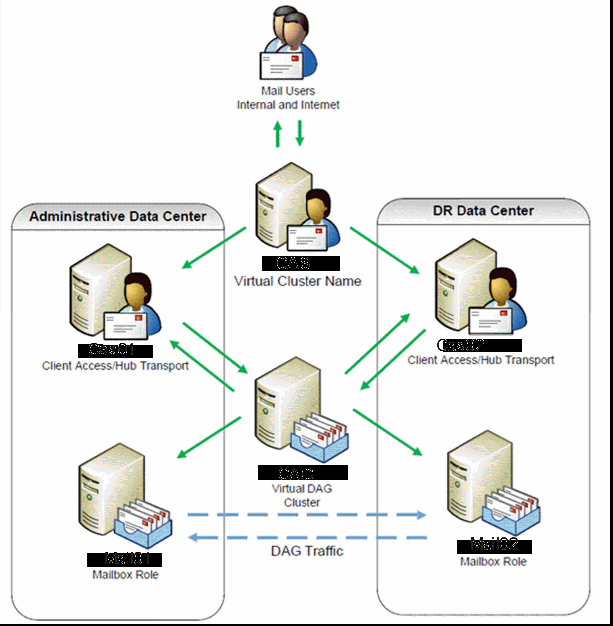|
Design and deploy Exchange 2010 Failover Cluster - Step by step with screenshots
This deployment will place four new Exchange 2010 servers into the
production environment virtualized
on a Microsoft Failover Cluster running on Windows 2008 R2 Servers. Two new
servers will exist within the primary data center, while an additional two
will serve redundant roles for disaster recovery.

Server Roles
The recommended implementation will add at least four new Exchange 2010
servers, two for the new
mailbox roles, and two for hub transport and client access roles. The
mailbox servers will be running
Windows Server 2008 R2 64-bit Enterprise and Exchange 2010 Enterprise. The
client access servers will be running either Windows Server 2008 R2 64-bit
Standard or Enterprise and Exchange 2010 Enterprise
(although Standard is acceptable for this role).
Disaster Recovery Configuration
For disaster recovery, a redundant server configuration in a physically
separate site is within the scope
of this project. Mailbox databases will be replicated using Database
Availability Groups (DAG). This is a
new replication technology introduced in Exchange 2010 that ships Exchange
transaction logs to a
replica target server or servers and rolls them into a remote copy of the
database. A network load
balanced cluster will be created to allow for high availability of the
client access role.
In the event of a failure of a CAS/HT server, the other server will pick up
automatically, users for the
most part will not notice, although some using OWA may be required to
re-authenticate. In the event
that the active member of the DAG group fails, the database will
automatically fail over to the standby
server. This is a quick procedure that can easily occur within 60 seconds,
with Outlook caching enabled,
most users may not notice. Further discussion may be necessary to determine
what level of failover
automation is wanted.
Post your questions, comments, feedbacks and suggestions
Contact a consultant
Related Topics
|
|

This web is provided "AS IS" with no warranties.